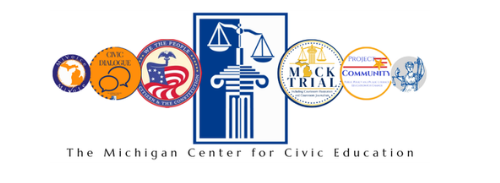Target Grades: 4-6
In this lesson, students use a school policy to define policy, understand that policies change, and recognize what and who influences policy making and changes.
Civics Lessons
Teaching How Citizens Influence Public Policy
Who can Vote for Student Council President?
Students review hypothetical scenarios and decide who may vote for student council president. Students review constitutional principles states must follow when deciding who can vote.
Appreciating Democracy
This lesson is designed to teach students to appreciate the most basic practices of democracy in the United States: The lesson can be taught in three or four 45-minute class periods. At the heart of the lesson are three easy-to-teach activities (or simulations).
Becoming an Informed Voter: Preparing for the General Election
This lesson focuses on a voter’s need to be fully informed prior to casting a vote on Election Day and how to acquire the necessary information. Students learn what a yes or no vote or a decision to abstain means on a ballot. Students learn the definitions of amendment,initiative, and referendum. Students are given the opportunity to think critically and to learn firsthand why voters need to be fully informed about ballot questions.
A Kid’s Guide to Running for President
Students will read about the election process and correctly put the steps in proper sequence. Students will participate in a debate on an issue that relates to their day-to-day school experience.
Civil Conversation on the 14th Amendment
This lesson uses the Civil Conversation strategy to have students take a closer reading of Section 1 of the Amendment
Becoming a Voter
In this lesson, students apply what they learn about their state’s requirements for registering to vote. Students learn when and how to register, how to complete a voter registration form, and when and how to re-register.
Yertle the Turtle Mock Trial
This mock trial exposes students to the mechanics of a jury trial, and stresses the importance of functioning as a juror.
2nd Amendment and the Courts
After reading and discussion of federal gun policies and proposals, their pros and cons, and the Second Amendment, students debate the merits of different gun policies.
The Jury System
In this lesson, students identify pros and cons of jury trials and judge-only trials, plus develop and respond to questions that might help to ensure the selection of a fair and unbiased jury.

